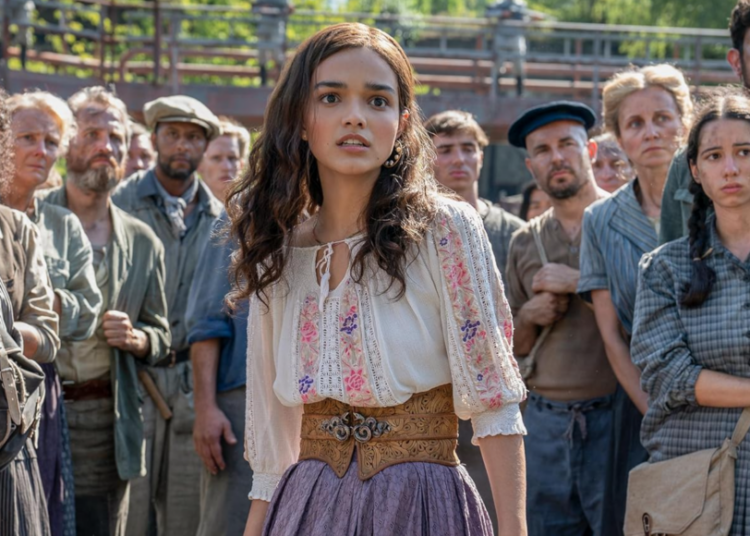Perhaps the new “Hunger Games” film’s success is due as much to its realism about human nature as it is to the fact that it’s a familiar product whose origins lie in the time before the full conquering of Hollywood by wokeness.
 The movie critic John Podhoretz once recalled a woman coming out of a movie saying she didn’t want to see any more movies she hadn’t previously viewed. Given the dreck coming out of Hollywood these days, that’s a sentiment I feel. It’s also perhaps a reason I was up for going with two of my kids to see the newest in the Hunger Games franchise: “The Ballad of Songbirds and Snakes.” If the need to make prequels and sequels is, per Ross Douthat, a sign of decadence and dead imaginations, the willingness on the part of viewers to see them is a sign of resigned rationality. If the originals weren’t too bad, perhaps this won’t be too bad either. It will be almost like watching a movie I’ve seen. This might help explain the movie’s success. Released on November 17, it has grossed almost $300 million at the time of this review, very profitable considering its budget was reported to be around $100 million.
The movie critic John Podhoretz once recalled a woman coming out of a movie saying she didn’t want to see any more movies she hadn’t previously viewed. Given the dreck coming out of Hollywood these days, that’s a sentiment I feel. It’s also perhaps a reason I was up for going with two of my kids to see the newest in the Hunger Games franchise: “The Ballad of Songbirds and Snakes.” If the need to make prequels and sequels is, per Ross Douthat, a sign of decadence and dead imaginations, the willingness on the part of viewers to see them is a sign of resigned rationality. If the originals weren’t too bad, perhaps this won’t be too bad either. It will be almost like watching a movie I’ve seen. This might help explain the movie’s success. Released on November 17, it has grossed almost $300 million at the time of this review, very profitable considering its budget was reported to be around $100 million.
The current installment of the series, written by Michael Leslie and Michael Arndt and directed by Francis Leslie, is a prequel that tells the story of how the dictator Coriolanus Snow became the villain that he is in the first movie’s tale set more than six decades later. The movie begins with a glimpse of the five-year-old Coriolanus, known as “Coryo,” and his cousin Tigris in the war-torn Capitol during the first rebellion of the districts of the fictional Panem. Coriolanus’s father, General Crassus Snow, has been killed and the child is subject to the hunger that always afflicts a war-torn country. His glimpse of an act of cannibalism displays the horrors quite effectively.
From this brief prologue the viewer is taken thirteen years into the future. Though the other movies, unsurprisingly given the country’s and citizens’ names, were dominated by Roman imagery, the scenery and costuming of this film hearkens more to the Third Reich. Though it’s aesthetically attractive and understandable, the constant reductio ad Hitlerum in modern approaches to tyranny becomes tiresome.
Coriolanus, played by Tom Blythe, is still poor because of his family’s fall from status when his father died. He is now a student in the elite “Academy” and determined to restore the family fortune by winning the Plinth Prize for the most outstanding student. The titular games, pitting people selected at random from Panem’s districts in a game of kill-or-be-killed, are now in their tenth year, and a new twist has been added in which the top twenty-four Academy students are selected to mentor participants. Snow is selected to mentor Lucy Gray Baird, a wandering singer from District 12 played by Rachel Zegler. The televised selection process shows Lucy Gray putting a snake into the dress of the District mayor’s daughter on her way up to the stage, then winning over the crowd with a heartrending song.
 If you recognize Zegler’s name, it is likely because the young singer and actress gained notoriety after being cast in Disney’s live action “Snow White,” scheduled for release in 2025. She condescendingly damned the 1937 animated version as woefully unwoke and promised a feminist version where there is “no love story.” Knowing this, I confess to wanting to dislike her in this film, but she is actually pretty good. She has a beautiful voice and is at least a passable actor. In the film, Snow wins Lucy Gray’s trust and begins to fall for her.
If you recognize Zegler’s name, it is likely because the young singer and actress gained notoriety after being cast in Disney’s live action “Snow White,” scheduled for release in 2025. She condescendingly damned the 1937 animated version as woefully unwoke and promised a feminist version where there is “no love story.” Knowing this, I confess to wanting to dislike her in this film, but she is actually pretty good. She has a beautiful voice and is at least a passable actor. In the film, Snow wins Lucy Gray’s trust and begins to fall for her.
Though the Academy’s dean, Casca Highbottom, played by Peter Dinklage, aims at keeping Snow down, the youngster proves his savoir faire by coming up with a scheme by which viewers can contribute supplies to contestants. Head game designer Dr. Volumnia Gaul, played chillingly by Viola Davis with one colored contact and Bride-of-Frankenstein hair, is impressed by Snow and takes him into her confidence.
After a Rebel bombing of the arena in which the games are taking place kills the son of Panem’s president, Gaul is intent on wreaking revenge on all the contestants. Snow, however, through a number of sly maneuvers, ends up saving Lucy Gray, who had saved his life during the explosion. Highbottom, who has discovered Snow’s actions, sentences Snow to become a Peacekeeper outside the Capitol for twenty years. Snow arranges to be assigned to District 12 along with his classmate Sejanus Plinth, a Rebel sympathizer.
It is here in District 12 that Snow begins to face a basic dichotomy. As he is reunited with Lucy Gray by chance, he is simultaneously tempted to betray Sejanus. Given the nature of prequels, it isn’t giving anything away to say which way Snow ends up going, though I will refrain from giving the details in anything more than sketch form.
What causes Coriolanus Snow to break bad? After watching the movie, I was dissatisfied with how this transformation was depicted. He was in love with Lucy Gray. He had effectively caused his own internal exile from the Capitol and from the halls of power because of that love. He now had the opportunity to leave behind the world of political snakes in order to live with his songbird in some sort of freedom.
But perhaps I am too romantic. Since childhood, Coriolanus Snow’s family members (apart perhaps from his cousin) all pushed him in the direction of restoring lost fortune, power, and status. Perhaps a nature in synch with nurture proved an irresistible force in his case. I lamented to one of my children after the film that Panem seems largely devoid of any sense of God or the gods apart from a few superstitions, a strange thing considering that the culture seen in the districts seems to be Appalachian—something inconceivable to me apart from the peculiar forms of Protestant Christianity that formed it.
But if the fictional Panem’s history represents a retelling of Rome’s transition from republic to empire (and not Germany’s transition from Christianity to neopaganism), perhaps the world is best seen in that light. It is a world in which an older paganism has lost its plausibility, and now the only game in town is the cruel religion of the state. In such a world, figures such as Cincinnatus are scarce. And despite the conceit that amor vincit omnia, love for a pretty young singer living in poverty and obscurity stands little chance of conquering the chance to feed the pride of life and the libido dominandi that Snow felt so acutely even as he was saving Lucy Gray in the arena. Though it too has a hard row to hoe, caritas stands a much greater chance at bending a political leader away from the thirst for blood.
Perhaps the film’s success is due as much to its realism about human nature as it is to the fact that it’s a familiar product whose origins lie in the time before the full conquering of Hollywood by wokeness. Romantic love is not the end of the story here, not because of a Disney-inspired desire for feminism, but because of a subtle understanding of original sin and the reality that power is a corrupting force that will tilt the scales from female songbirds to political snakes nine times out of ten.
The Imaginative Conservative applies the principle of appreciation to the discussion of culture and politics—we approach dialogue with magnanimity rather than with mere civility. Will you help us remain a refreshing oasis in the increasingly contentious arena of modern discourse? Please consider donating now.
The featured image is courtesy of IMDb.


